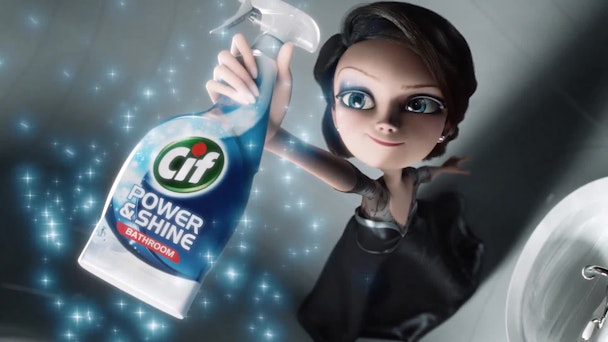Unilever vows to stamp out female stereotyping in its adverts
Unilever has committed to stop stereotyping women in adverts, promising that it will “advance portrayals of gender” across more than 400 of its brands – which include Knorr, Dove, Cif and Surf.

Unilever
The brand made the public declaration of its intent today (22 June) at the Cannes Lions festival in France, explaining that it would address the three key areas where they are typically misrepresented: role, personality and appearance.
The message sent out to its agencies it that the roles women play in its ads must now be broadened to “represent aspirations and wider achievements beyond product-related responsibilities” while their personalities will be more “authentic and three dimensional”.
Finally, their appearance “should be presented as enjoyable and non-critical, creating a positive and creative interest in being whoever you want to be”.
BBH, 72andSunny, JWT, DDB, MullenLowe and Ogilvy have already committed to the approach with Unilever expecting more of its agency partners to follow suit.
“Stereotyping in advertising is a prevalent issue for all genders. However, our research shows that the negative effects are most keenly felt when it comes to representations of females,” said Aline Santos, executive vice president of global marketing for Unilever.
The decision was made after it carried out multiple studies around the world over the last two years to better understand how female identity has evolved. Analysis of over 1000 adverts exposed that 50 per cent had a stereotypical portrayal of women.
Unsurprising then that “40 per cent of women say they do not identify at all with the women they see in adverts,” said Santos.
“Advertising can be a powerful force in leading positive cultural change. We believe it is our responsibility, alongside the industry, to be at the forefront of this change by positively portraying people as they truly are today – progressive ads will lead us to a progressive future for all.”
It’s already been pushing this agenda for brands including Axe, Dove and Knorr and claims that through testing with Millward Brown it can prove that more progressive advertising generates stronger engagement, talkability and delivers better branded impact.
Adverts seen as more "progressive" in their representation delivers an average 12 per cent uplift in perception for each brand, leading Unilever to say that this is not just a moral issue but an economic one as well.
“This shows that not only is there an important societal imperative for this change but a business imperative as well; it’s an important journey that we must go on if we want to ensure we are truly maximising the potential of our creative outputs for today’s audiences,” said Santos.
The Drum has taken a look back at previous Unilever ads which have been accused of using gender stereotypes and may have inspired its new approach.

